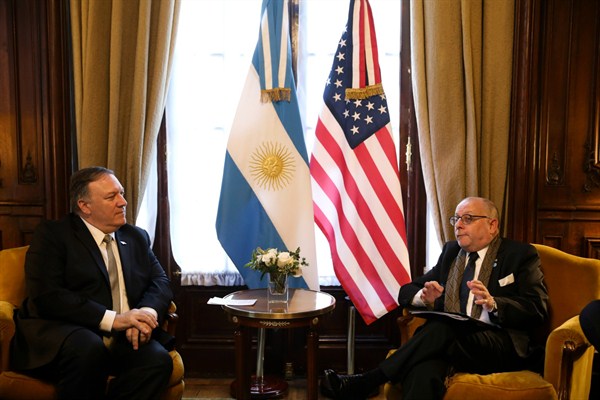The Trump administration has boosted security cooperation with right-wing governments in South America in recent months to address the perceived threat of Hezbollah in the region. In late July, Secretary of State Mike Pompeo attended a counterterrorism conference in Buenos Aires, where the Lebanese militia and political party, which is backed by Iran, was a major focus of his meetings. Under pressure from the United States, Argentina and Paraguay have already designated Hezbollah a terrorist organization, and Brazil is considering doing the same. But according to Fernando Brancoli, a professor of international security at the Federal University of Rio de Janeiro, American observers tend to overstate the scale of Hezbollah’s sporadic and disorganized activities in the region. In an email interview with WPR, he explains what’s behind the recent deepening of security ties between the Trump administration and like-minded governments in South America.
World Politics Review: How much of a presence does Hezbollah really have in South America? How much of a difference will Washington’s increased security cooperation with Brazil, Argentina and Paraguay make in addressing this threat?
Fernando Brancoli: There are no solid numbers about the presence of Hezbollah in South America, especially regarding the number of operatives or total revenue produced by its activities in the area. Some American think tanks and researchers have tried to calculate it, as has the U.S. Department of State, but those assessments tend to exaggerate the threat. Hezbollah operates mainly by using its loose connections with low-level merchants of Syrian and Lebanese origin in the “triple border” region, where Brazil, Argentina and Paraguay meet. This has long been known as a lawless area, rife with organized crime and illegal trafficking activities. I would take any analysis of a sophisticated and extensive Hezbollah presence in the region with a grain of salt. It has no organized structure in South America—there are no hierarchical divisions of tasks or regular meetings, for example. It often uses its contacts in the area to launder money or smuggle drugs and cigarettes, but not at a large enough scale to generate significant revenue.

